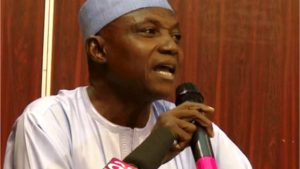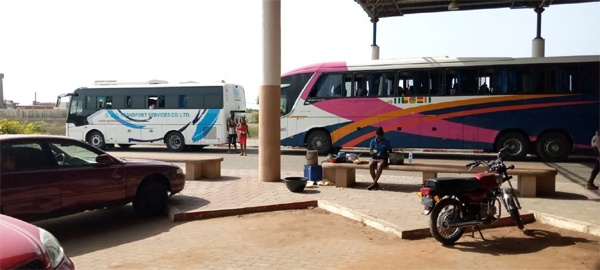 The Senior Special Assistant to the President, Media and Publicity, Malam Garba Shehu, says the media should be held accountable for misinformation capable of causing devastating consequences on the nation, economy and individuals.
The Senior Special Assistant to the President, Media and Publicity, Malam Garba Shehu, says the media should be held accountable for misinformation capable of causing devastating consequences on the nation, economy and individuals.
Shehu made his position known in a paper presentation entitled, ”Media and Democracy: Challenges of Journalism”, at the 2020 Annual Lecture of the Abuja Branch of the Barewa Old Boys Association, in Abuja on Saturday.
The presidential aide argued that any attempt to hold the media accountable or punish libelous publication in Nigeria should not be automatically regarded as an attack on journalism and press freedom.
The presidential spokesman also called for better remuneration of journalists in the country, warning that poor and backlog of unpaid salaries expose media practitioners to corruption.
Shehu, who spoke in his capacity as a journalist and media practitioner, with over three decades of experience in the profession, described social media as a powerful tool for people-oriented governance.
He, however, posited that social media had made the role of the traditional media ”complex”, cautioning that ‘‘media recklessness’’ could cause devastating consequences on the polity.
”The social media is like a rogue elephant that seems out of control. But despite this notorious image, social media are powerful platforms.
”They enable politicians and activists to engage directly with the people. Besides, groups that are marginalised by the traditional media use the social media to get their voices heard,’’ he said.
He gave several anecdotes of how journalists in the country had deceived the unsuspecting public with false narratives passing as truth.
The spokesman cited the recent report of a national daily that falsely reported that Bishop David Oyedepo of the Living Faith Church was denied visa by the U.S Embassy, and how another national daily falsely feasted on how a former minister of FCT collapsed and was flown abroad for treatment after seeing a tortoise on his office seat.
The presidential spokesman also used the opportunity of his presentation to weigh-in substantially on the social media bill before the National Assembly.
”At the recent public hearing by the National Assembly on the draft, private member’s bill on social media, more than 100 activist groups presented a demand that there should be no law.
”This is in spite of a public opinion survey conducted by NOIPolls revealing that new media (social media, blogs, etc.) is a major breeding ground for fake news in the country as indicated by 67 per cent of Nigerians.
”Nigerian journalists have learnt to exploit international sympathy in such situations, crying media harassment and death of press freedom, instead of owning up to their errors of judgment and facing punishment from the judiciary.
”There is hardly a week without my getting a call from Committee to Protect Journalists (CPJ) asking some of the silliest questions about a Divisional Police Officer (DPO) in a faraway local government asking to see a journalist over a published report.
READ ALSO: Busted: How Lagos explosion killed 15, destroyed 70 buildings, displaced 200 residents
”Or questions about a former journalist, a presidential candidate in his conduct as a politician making all sorts of suggestions that he cannot be questioned by the law because he practiced as a journalist in the past.
”Long story short, the difficulty of the government in a democracy like Nigeria is how to strike a balance between press freedom, and a sometimes corrupt and dangerously reckless media,” he said.
On press freedom, Shehu declared that since the return to democracy in 1999 the Nigerian media enjoyed greater freedom than they had under military rule.
”Freedom, like power, is however, subject to abuse. For the media to contribute to the success of democracy, they must inform the people accurately.
”They must reflect on the diversity of society while playing the role of information dissemination. Media practitioners shouldn’t be religious and ethnic crusaders, supporting one side against another, thereby escalating tensions and conflicts in society.
”The pursuit of political agenda can fundamentally compromise the role of the media in deepening democracy,’’ he said.
On remuneration of journalists, the former president of the Nigeria Guild of Editors said: ”We have media workers who are poorly paid, when and how they are paid.
”It is said that certain media organisations in the country had the practice of telling newly-recruited reporters to not expect salaries, that the official ID card was their meal ticket.
”Late MKO Abiola used to say that you must pay your journalists well otherwise someone will pay them and they will work for him.
”It then follows that journalists poorly paid or not paid at all are paid by news sources to print and not to print.
”It is hard to think of an unpaid journalist, hungry that can be steadfast in standing by their ethics. An Arab proverb says a hungry man can fight the king,’’ he said. (NAN)

